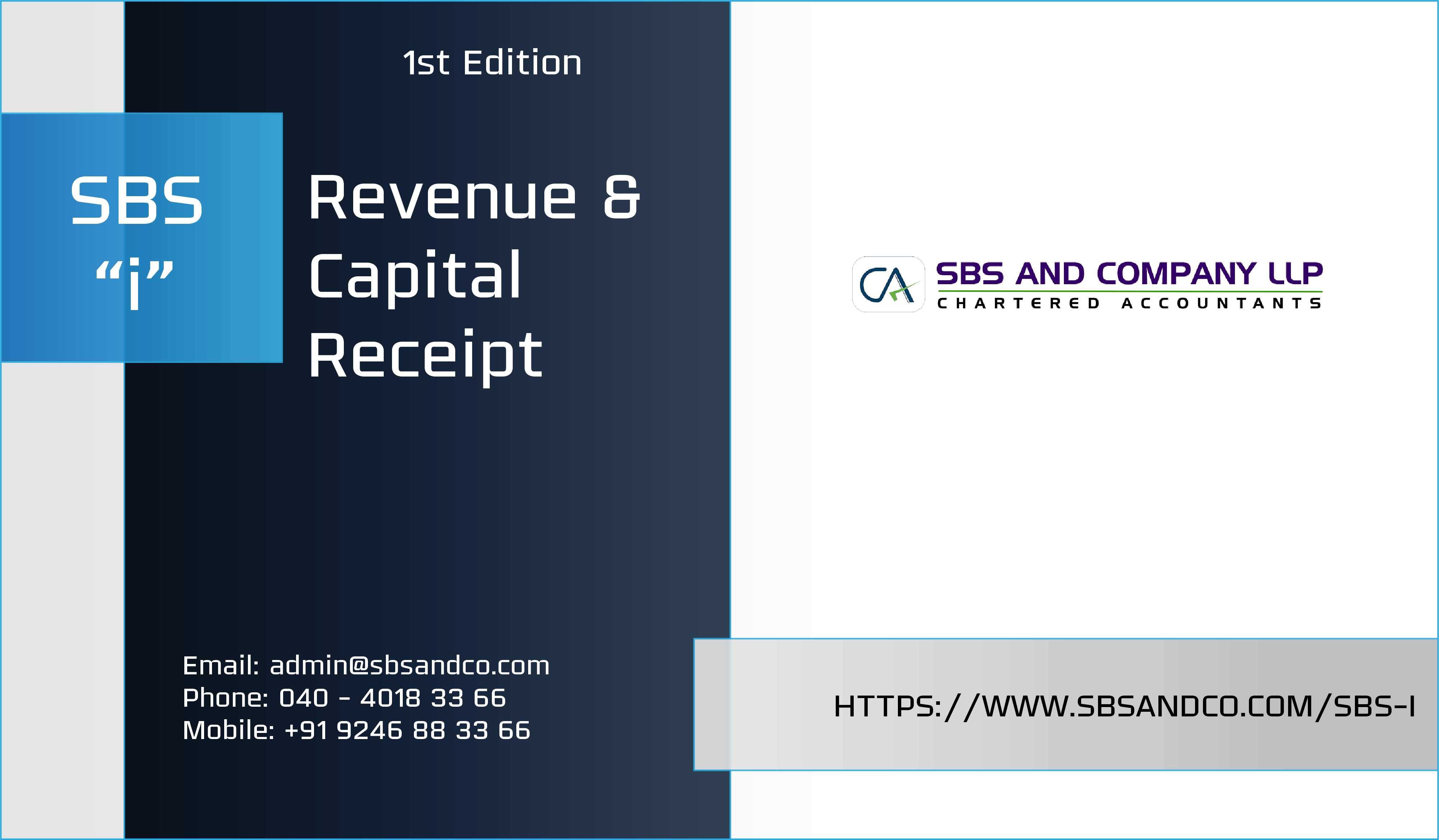Brief of Update:
Non-competing fee from business accrued or received by the assesse though capital in nature is chargeable to tax as per Section 28 of the Income Tax Act, 1961. This judgement throws light on nature of receipt of non-competing fee from business based on facts and cir- cumstances rather than going by the terms of the agreement. In this Judgement the High Court took note of the events happened after the agreement has been entered while decid- ing the nature of the receipt.
CIT vs R. Radikaa, M/S Radaan Media Works India Ltd - High Court of Madras:
Facts:
Assesse is an artist and film director. She entered into an agreement with a company to pro- vide her service and intellectual capacity to it on 03.04.2000. The agreement inter alia pro- vides that she would not compete with the business of company in India or elsewhere and would take company consent before accepting an engagement as an actor besides pay- ment of 5% of her individual earnings to the company.
The agreement was for a consideration of Rs. 75, 00,000/- by way of allotment of 75,000 shares of Rs. 100/-. Apart from this assessee individual business was taken over by the company for a consideration of Rs. 4.37 cr in March 2000. The assets transferred to the company includes brand equity at a value of Rs. 75, 00,000/-
Assessee owns 99% of the shares as on 02.04.2000. The company went to public in year 2003. Assessments were framed in the case of both the individual as well as the company.
The AO was of the view that the amount of Rs. 75,00,000/- was in the nature of remuneration paid to the individual for loss of business of the assessee.
AO has relied on Judgement of Madras HC in case of K. Ramasamy vs CIT 261 ITR 358
AO has observed that there has been drop in business revenue from sole proprietorship that stood compensated by arrangement for non-compete fee. AO thus held that non -compete fee is revenue receipt.
The amount of Rs. 75,00,000/- was added to the income of the assessee and in the hands of the company depreciation was disallowed on non-competing fee paid as well as brand equity contending that it is not any business or commercial rights of a similar nature to qualify as intangible asset.
CIT (A) and ITAT concluded that the amount of Rs. 75 Lakhs paid for making available assessee intellectual capability, capacity and experience. It was a non-compete fee and held that compensation related to the restrictive covenants is capital receipt and not chargeable to tax. The addition was deleted and depreciation on non-competing fee was allowed in the hands of the company.
High Court Judgement:
The Artist who was managing the business as a proprietary concern continued to be part of corporate structure employing same skill set as was employed by her.
The assessee was and continues to be the face of the business as proprietor and thereafter as a director with substantial holdings with firm holding on decision making. The company went to public issue in Feb 2003 and shareholding of the assessee after public issue was 51.33%.
Piercing the veil the High Court held that the burden is on the assessee to establish that the transaction is bonafide and genuine. It upheld the AO findings to the extent of chargeability of non-competing fee.
Relying on the judgements of Madras High Court in Penta Media Graphics and Delhi High Court in Sharp Business Systems vs CIT held that brand equity constitutes an intangible asset in terms of section 32(1)(ii) and depreciation is granted.
Take Away:
The issue related to AY 2001-02 and law applicable to the relevant assessment year do not pro- vide for taxability of non-competing fee being a capital receipt. The Finance Act 2002 has pro- vided that non-competing fee received or receivable in relation to business activities is chargeable to tax under the head PGBP. This amendment will apply from AY 2002-03.
The CBDT vide notification dated 12/01/1977 notifies the profession of film artist for the purpose of section 44AA. The term film artist interalia means film actor.
The Finance Act 2016 has provided that non-competing fee received or receivable in relation to profession is chargeable to tax under the head PGBP. This amendment will apply from AY 2017-18.
Before the amendment by Finance Act 2016 non-competing fee received by professional is not taxable. As a result, the difference between business and profession is removed in relation to taxation of non-competing fee.
This article is contributed by Partners of SBS and Company LLP - Chartered Accountant Company. You can be reached at This email address is being protected from spambots. You need JavaScript enabled to view it.



